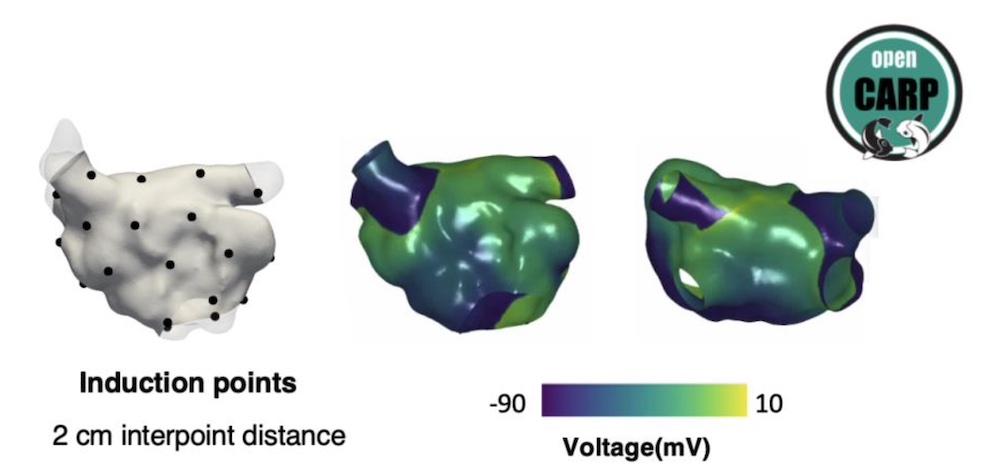Explainable Machine Learning for the Prediction of Arrhythmia Vulnerability
- chair:Cardiac Modelling
- type:Master thesis
- tutor:
- person in charge:
Motivation
Success rates of catheter ablation in atrial fibrillation (AF) patients are suboptimal. Computational modeling tools, including the assessment of arrhythmia vulnerability (AV) for in silico ablation planning, offer potential for personalized AF treatment. Integrating machine learning can enhance efficiency by optimizing the computational cost of AV assessment, thereby expanding its clinical applicability. While explainable machine learning models have explored the impact of left atrial (LA) substrate on reentry anchoring, the behavior of biatrial models remains unexplored.
Task
In this study, the initial phase involves analyzing clinical features associated with atrial fibrillation (AF). Subsequently, you will investigate the influence of these features on predicting arrhythmia vulnerability. This will be achieved through the creation of a synthetic cohort comprising virtual biatrial models, followed by the development of an interpretable machine learning model to identify key input parameters affecting reentry maintenance. The final step involves testing the model using real patient-specific data.

